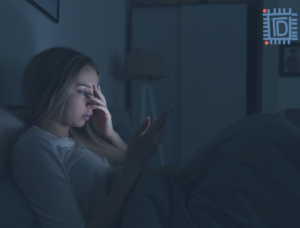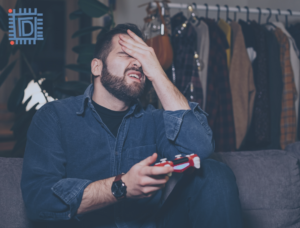To date, there are more than 280 million smartphone users in the USA, and this number is expected to reach 285 million by the year 2023. 47% of the U.S. smartphone users say that they can’t live without their devices; and 35% of the total users are those that check their phones more than 50 times a day (Pew Research Center).
According to a report published by Data Re portal, the average user will tap, swipe and click their phones 2617 times a day. Yes, we do click, swipe and then tap several times every day. While the fundamental function of the mobile phone was to facilitate phone calls on the go, how many of us use mobile phones to just make traditional phone calls? In fact mobile phones are no more just mobile phones, they are mobile computers that we utilize to deal with a lot of our personal as well as official matters. But this over-dependency is leading to over addiction of smartphones that in turn has taken the form of digital anxiety and stress. The mental health of individuals having high levels of engagement with smartphones is somehow at risk. You know how? Here is the detail of some of the digital stressors and how are they affecting our mental health:
Nomophobia
We highly depend upon our digital devices for information and connection, so the feeling of losing them makes us anxious. Think for a moment, if suddenly you are not able to find your phone, what would you do? You would start thinking about how to deal with losing a lot of important data stored in your phone. This way, a lot of smartphone users are consistently facing a fear of losing their smartphones or fear of being without smartphones for a while or so, this fear has an adverse impact on their day-to-day life. Mental health practitioners name it ‘nomophobia’
losing them makes us anxious. Think for a moment, if suddenly you are not able to find your phone, what would you do? You would start thinking about how to deal with losing a lot of important data stored in your phone. This way, a lot of smartphone users are consistently facing a fear of losing their smartphones or fear of being without smartphones for a while or so, this fear has an adverse impact on their day-to-day life. Mental health practitioners name it ‘nomophobia’
“No mobile phone phobia”. People having this phobia are highly concerned about what might happen if they suddenly couldn’t access needed information.
Various studies suggest that this phobia is becoming more widespread. According to a 2019 research, about 53 percent of the research participants who owned a phone were anxious when they didn’t have their phone, had a dead battery, or had no service.
A 2017 study found 17.9 percent of the research participants had mild nomophobia. For 60 percent of participants, nomophobia symptoms were moderate, and for the rest 22.1 percent of the participants, the symptoms of nomophobia were severe.
It’s a newly discovered phobia because it emerged during this digital age. People having relatively higher reliance on technology may be at risk of developing this phobia.
Texting Anxiety
While you sent a text message, and now it’s been 10 minutes and the person hasn’t responded yet, and you are seeing that it’s been read, but you have not got any response.
yet, and you are seeing that it’s been read, but you have not got any response.
Similarly, in another instance, you got a message from a co-worker, and you are thinking of an appropriate response to this message and the delay in replying is making you anxious and restless. Maybe the thing that you are dealing with is texting anxiety but don’t worry, you are not an exceptional case, the changing dynamics of texting are turning more and more people into nervous wrecks.
Some signs of texting anxiety are: reading messages multiple times, getting panicked while not receiving a response, avoiding the phone once finished sending a message, overanalyzing spelling or even the punctuation etc.
Texting anxiety is another digital stressor that puts your mental health at risk. People develop it because they start discussing important matters over a text message, or are engaged in over use of the mobile phone; some people are also used to checking messages just after waking up. You may avoid it by telling yourself that all texts don’t need an immediate reply, and develop the habit of staying away from your phone while you are not working.
Video Games Anxiety
Sometimes, the relief that people expect to have from gaming may turn into anxiety. Even the video games that you use to soothe yourself may sometimes trigger the negative feelings if you fail to level up. Video games are also a form of the digital stressors. So, what should you do? Give up on video games for the sake of good mental health? Giving up is not necessarily the option, you may try other ways to control this stressor in order to maintain the mental health of your brain.
fail to level up. Video games are also a form of the digital stressors. So, what should you do? Give up on video games for the sake of good mental health? Giving up is not necessarily the option, you may try other ways to control this stressor in order to maintain the mental health of your brain.
You must start with smaller and healthier goals, it might be too hard to do! But thinking of smaller tasks you can accomplish in your video games can reduce your anxiety. Similarly, at times you must focus your energy somewhere else. Engaging in something calming before and after gameplay can help with anxiety. It may be anything that may reduce your stress level.
You may also watch the games instead of playing. Once you finish watching, then play because watching may make the unknown known, and teach you the risks of a game before you play, so you may have a successful session.
FOMO
Fear Of Missing Out is a form of social anxiety that is because of the fear of missing out on something; maybe it’s some event, a work opportunity, a communication, or a potential connection, or merely something cool that you wish to see or be a part of. We have a strong desire to be connected. Can you think about coming off social media? Probably you would not, because of FOMO. The more connected we are, the more likely we are at the risk of experiencing FOMO. The key to working with the anxiety caused by FOMO is to limit your social media use. There might be some information that you may miss out while you are not connected to social media platforms, but remember that information might not be as crucial as your current project that you have been supposed to work on.
connection, or merely something cool that you wish to see or be a part of. We have a strong desire to be connected. Can you think about coming off social media? Probably you would not, because of FOMO. The more connected we are, the more likely we are at the risk of experiencing FOMO. The key to working with the anxiety caused by FOMO is to limit your social media use. There might be some information that you may miss out while you are not connected to social media platforms, but remember that information might not be as crucial as your current project that you have been supposed to work on.
Constant comparisons
When we spend a lot of time with our digital devices, there is a possibility that we may engage in making meaningless comparisons. According to social comparison theory, we use these types of comparisons to evaluate ourselves. Social Media, by its nature, obviously encourages social comparison. There is a disparity between real life and the one people show off on social media which is a false impression that others lead a better life than our own which may not be true really. Such negative social comparisons may have serious consequences for our wellbeing. Disengage more often from social media, it’s not easy though, but it’s one of the best things you must go for.
in making meaningless comparisons. According to social comparison theory, we use these types of comparisons to evaluate ourselves. Social Media, by its nature, obviously encourages social comparison. There is a disparity between real life and the one people show off on social media which is a false impression that others lead a better life than our own which may not be true really. Such negative social comparisons may have serious consequences for our wellbeing. Disengage more often from social media, it’s not easy though, but it’s one of the best things you must go for.
An unnecessary engagement with your smartphone may be harmful for your mental health, especially when it’s more frequent. Think differently and limit your smartphone usage to avoid its detrimental effects on your mental health.
Follow us:
Facebook : Think Different Nation
Instagram : Think Different Nation
Twitter : @TDN_Podcast
